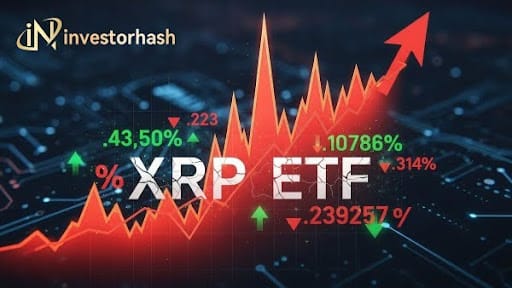Thailand Approves Five Year Crypto Tax Exemption to Attract Digital Investment

Cointelegraph reports that Thailand approved tax exemptions on income from cryptocurrency sales for five years. Thailand will waive capital gains tax on crypto transactions through licensed providers from January 1, 2025, to December 31, 2029. Deputy Finance Minister Julapun Amornvivat announced the measure Tuesday to strengthen Thailand's position as a global financial hub. The exemption applies only to trades through Securities and Exchange Commission regulated platforms, promoting compliance with Anti-Money Laundering policies recommended by the Financial Action Task Force.
The government estimates the measure will help Thailand's economy expand by at least 1 billion baht ($30.7 million) in medium-term tax revenue. Officials designed the policy to attract foreign investment while stimulating domestic consumption and technological innovation. The ministry positions this move as part of Thailand's broader effort to become one of the first countries with comprehensive digital asset laws and taxation frameworks.
Thailand's Expanding Digital Asset Framework
Thailand has rapidly developed its cryptocurrency regulatory landscape over recent years. Baker McKenzie notes that Thailand moved from largely unregulated crypto space to structured oversight between 2023-2024, with regulators increasing scrutiny and developing harmonized global standards. The country now requires foreign cryptocurrency platforms serving Thai users to obtain licenses under new Royal Decrees that took effect in April 2025.
Recent regulatory actions demonstrate Thailand's balanced approach. AIM Bangkok reports that authorities can now block unlicensed platforms while licensed operators expand services. KuCoin launched a fully regulated local subsidiary after acquiring SEC licensing, while Tether began rolling out tokenized gold assets through local exchange Maxbit. However, Thai SEC blocked five global exchanges including Bybit and OKX for operating without proper authorization.
The Bank of Thailand maintains a cautious stance on crypto payments while supporting controlled innovation. Lexology explains that while the central bank discourages general cryptocurrency usage for payments, it permits select businesses in regulatory sandboxes to explore programmable payment solutions under supervision.
Global Tax Policy Context and Regional Competition
Thailand's tax exemption contrasts sharply with global trends toward stricter crypto taxation. Global Citizen Solutions identifies Thailand among emerging crypto tax havens, joining countries like Portugal, Malta, and Germany that offer reduced taxation for long-term holdings. Meanwhile, major economies impose substantial burdens: India applies 30% taxation on crypto profits, while Japan enforces progressive rates up to 55%.
The United States faces regulatory uncertainty under evolving policies. Bitcoin Depot reports discussions about potential zero crypto tax policies, though specific implementation remains undefined. European nations generally maintain higher tax rates above global averages, despite some countries favoring long-term cryptocurrency investments.
Asian financial centers compete intensively for crypto market share. Bloomberg reports that Singapore issued 13 crypto licenses in 2024, more than double the previous year, while Hong Kong struggled with slower licensing progress. Singapore's regulatory efficiency attracted major exchanges like OKX and Upbit, positioning it ahead of Hong Kong in the regional crypto hub race.
Market Implications and Future Outlook
Thailand's move occurs amid Southeast Asia's rapid cryptocurrency adoption growth. Chainalysis data shows seven of the top 20 countries in global crypto adoption rankings come from Central and Southern Asia, with Thailand ranking 16th. The region accounts for 16.6% of global crypto value received, driven by centralized exchanges and substantial professional trading activity.
The policy aligns with broader Southeast Asian crypto expansion trends. CoinMarketCap analysis indicates the region's 675 million people represent significant growth potential, with countries developing inclusive financial landscapes addressing varied population needs. However, regulatory uncertainty and consumer education gaps remain challenges across different nations.
Thailand's tax exemption sends a clear message about competition for crypto business in Asia. While Singapore leads with comprehensive licensing frameworks and Hong Kong accelerates crypto ETF offerings, Thailand differentiates itself through tax incentives. This creates pressure on other regional financial centers to develop competitive advantages in the evolving digital asset landscape.
The policy's success will depend on execution quality and market response. Thailand's alignment with international standards like the OECD's Crypto Asset Reporting Framework shows commitment to transparency while attracting investment. As global crypto markets experience renewed growth under changing U.S. policies, Thailand positions itself to capture increased regional investment flows through its tax-advantaged framework.
Related Reading on BTC Peers
For comprehensive insights into global crypto policy developments, read the Global Bitcoin Policy Index (GBPI) analysis. This article provides detailed examination of how different countries approach Bitcoin regulation and policy implementation. Readers will gain understanding of comparative regulatory frameworks, policy trends across major economies, and how Thailand's approach fits within the global regulatory landscape. The analysis offers valuable context for investors and policymakers tracking international crypto adoption patterns and regulatory evolution.




